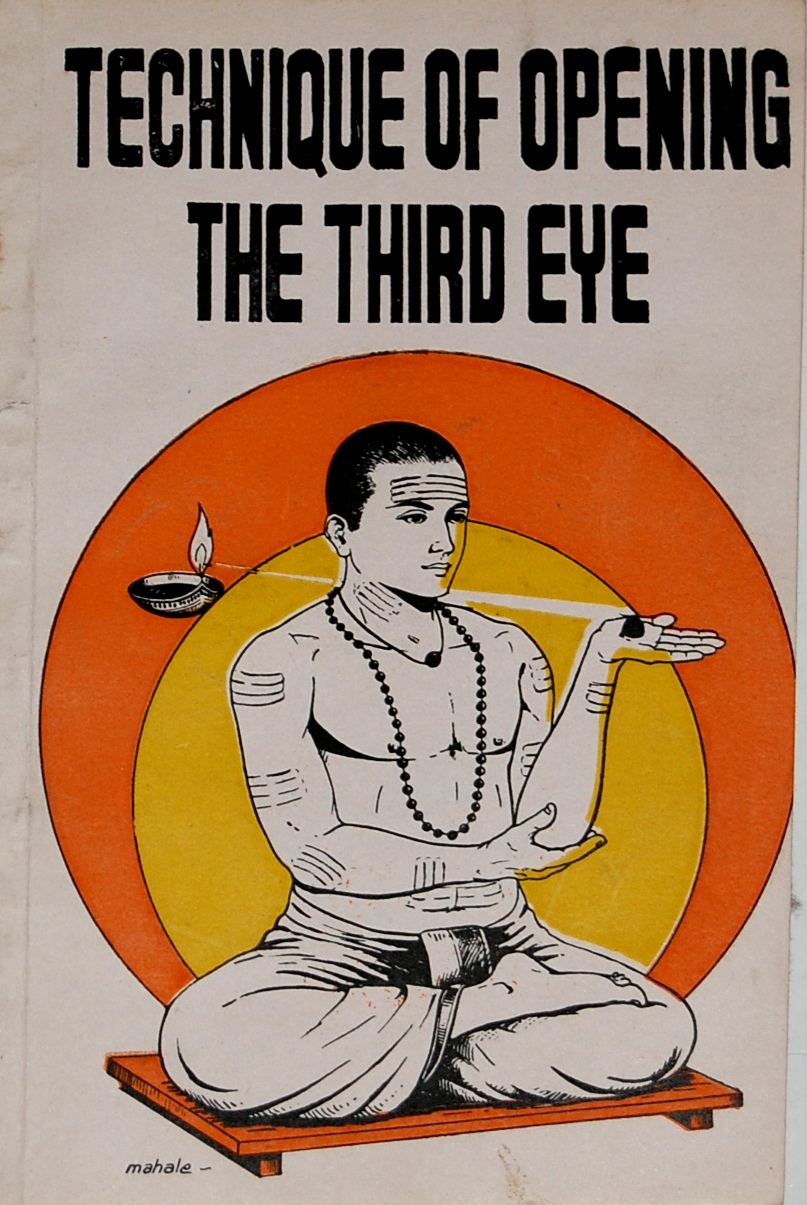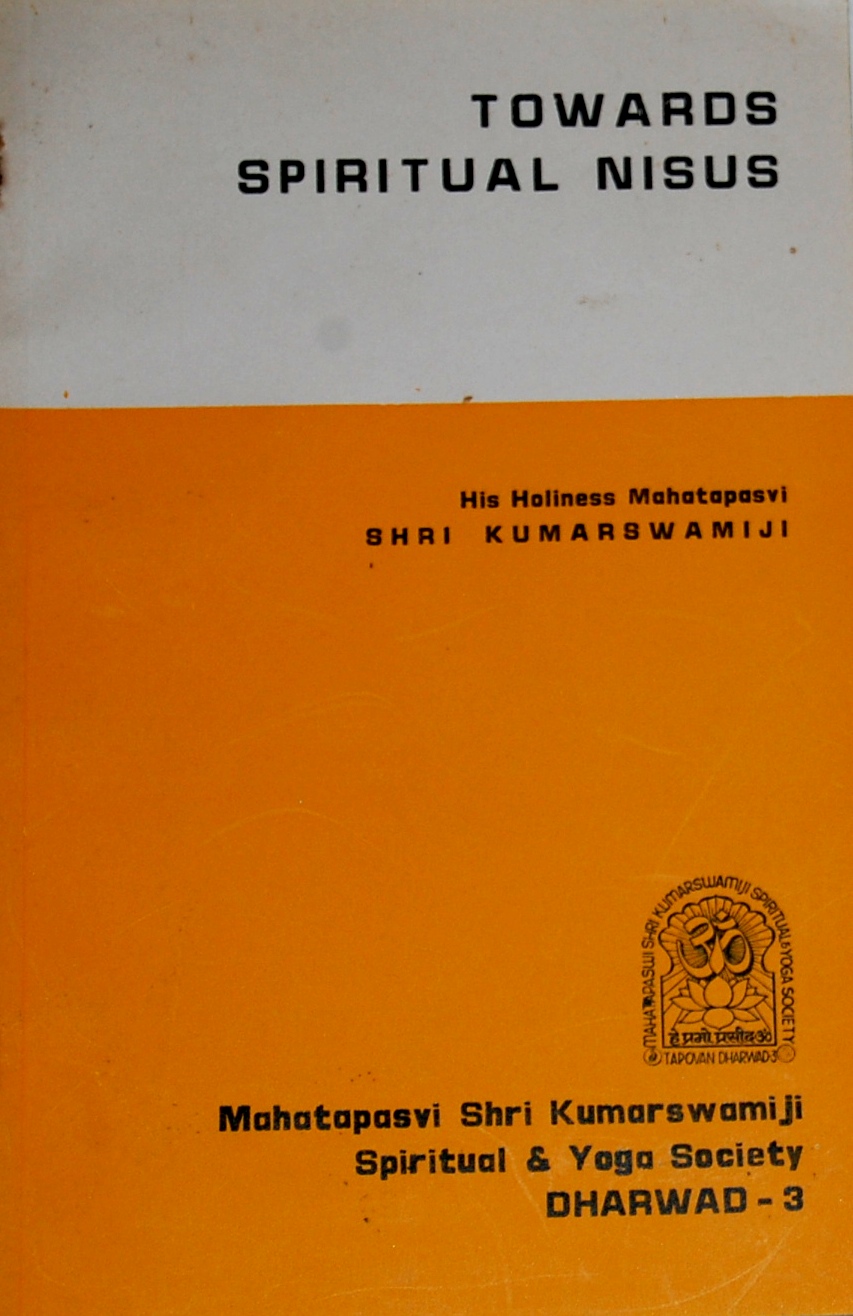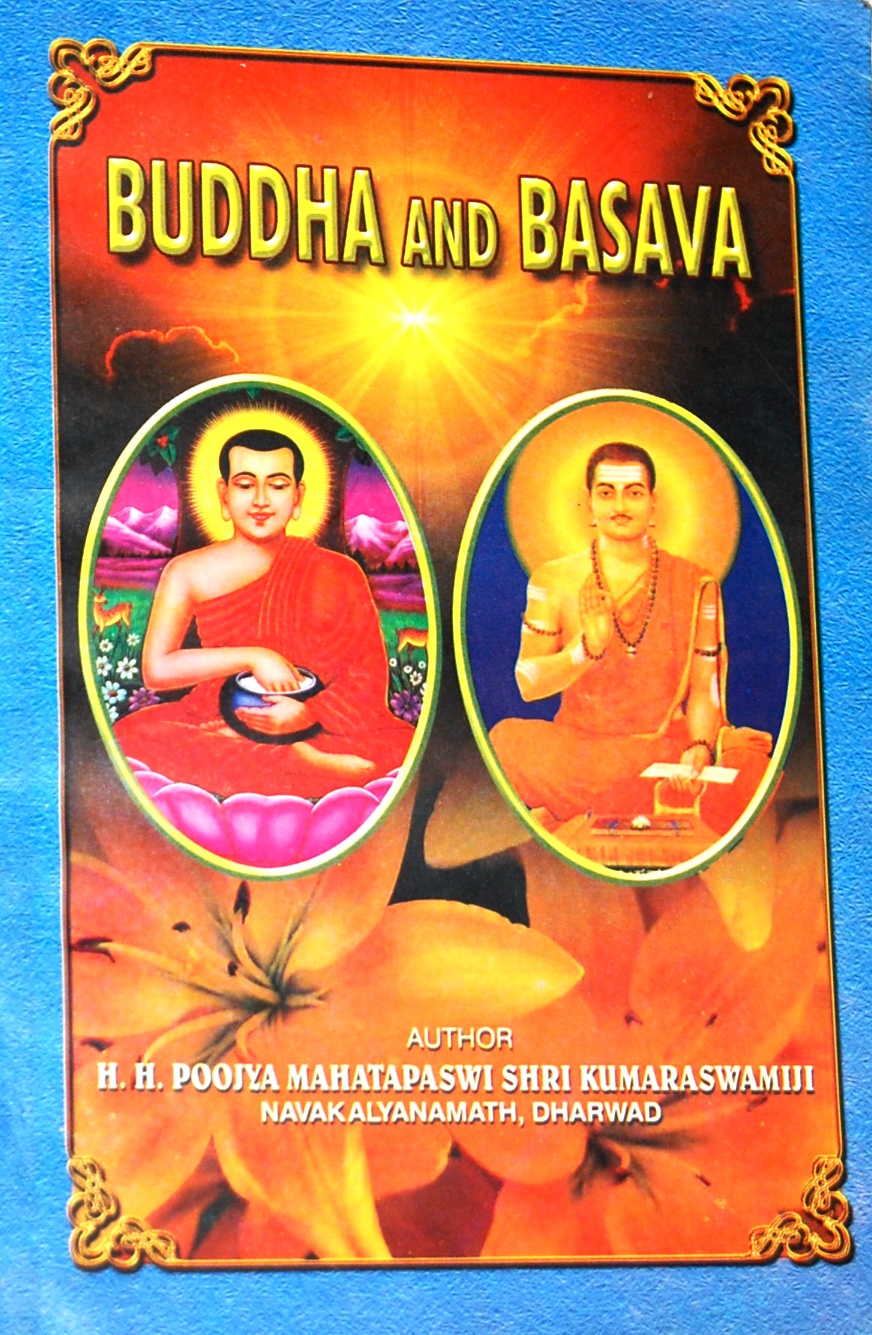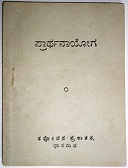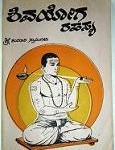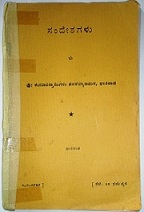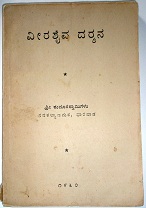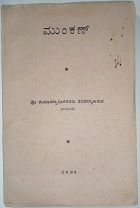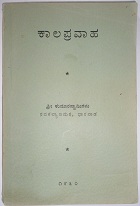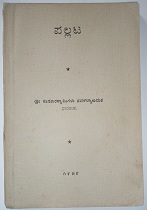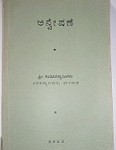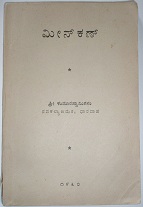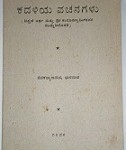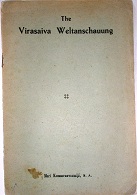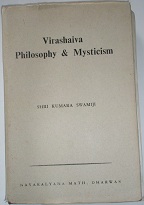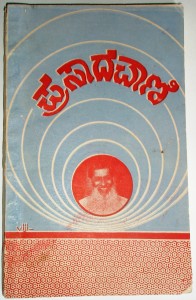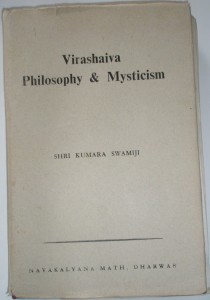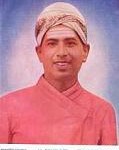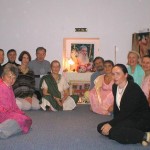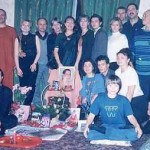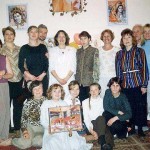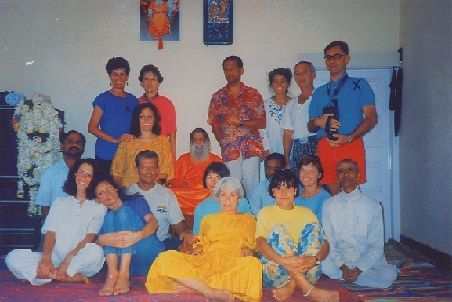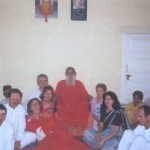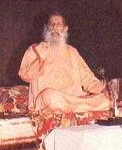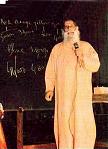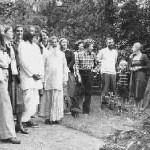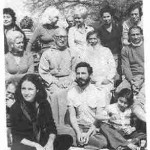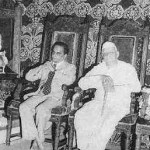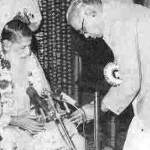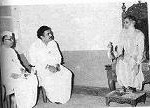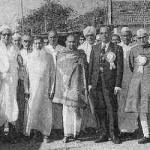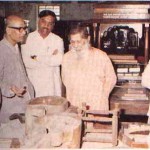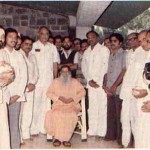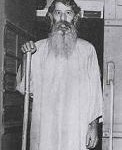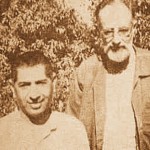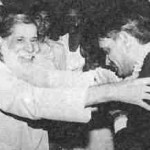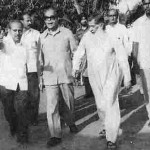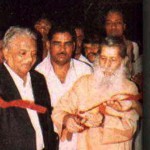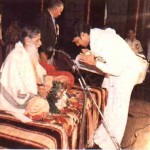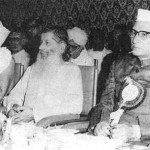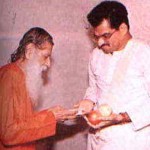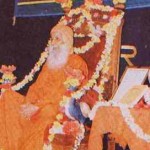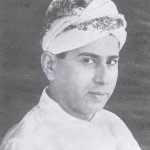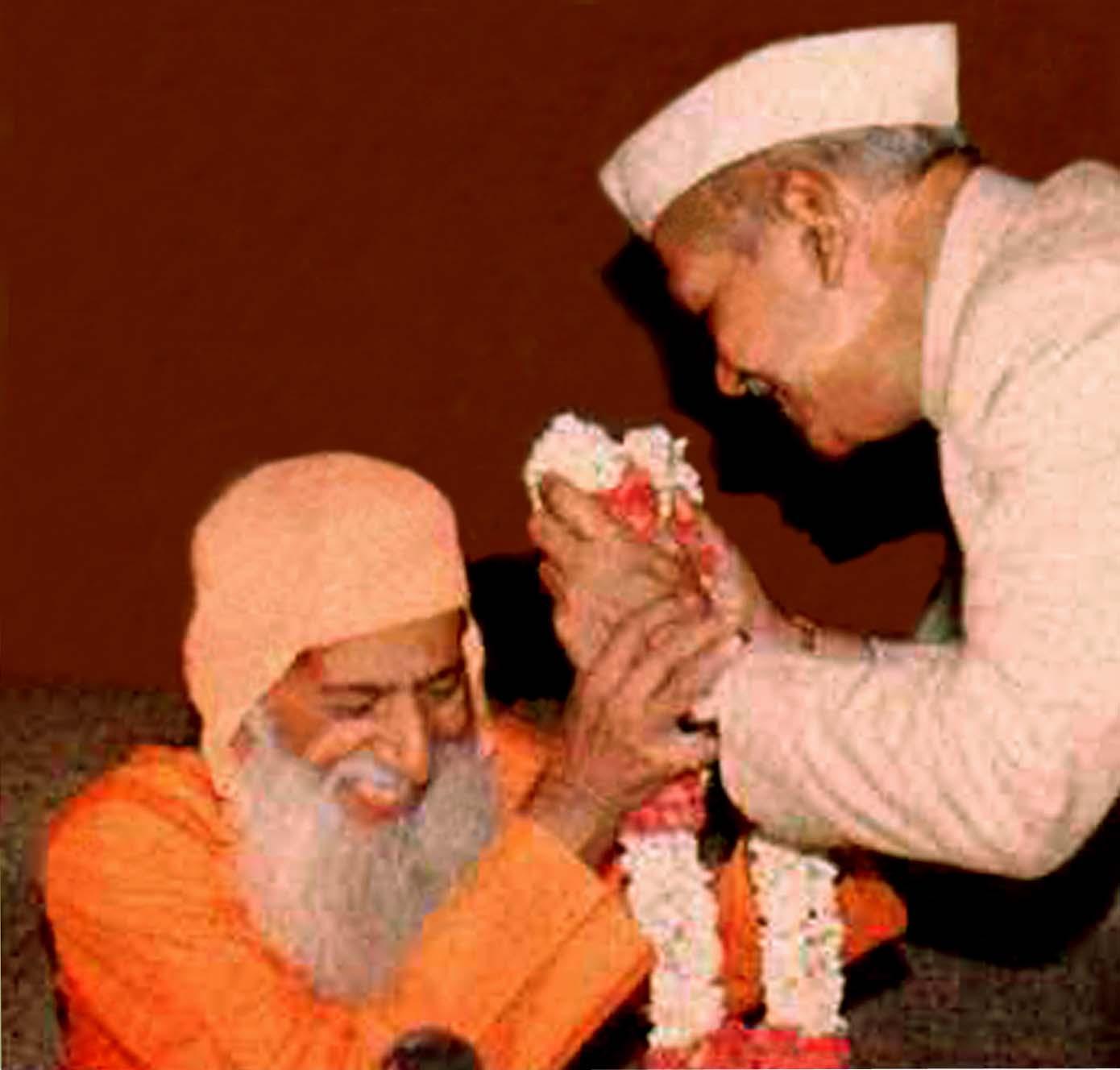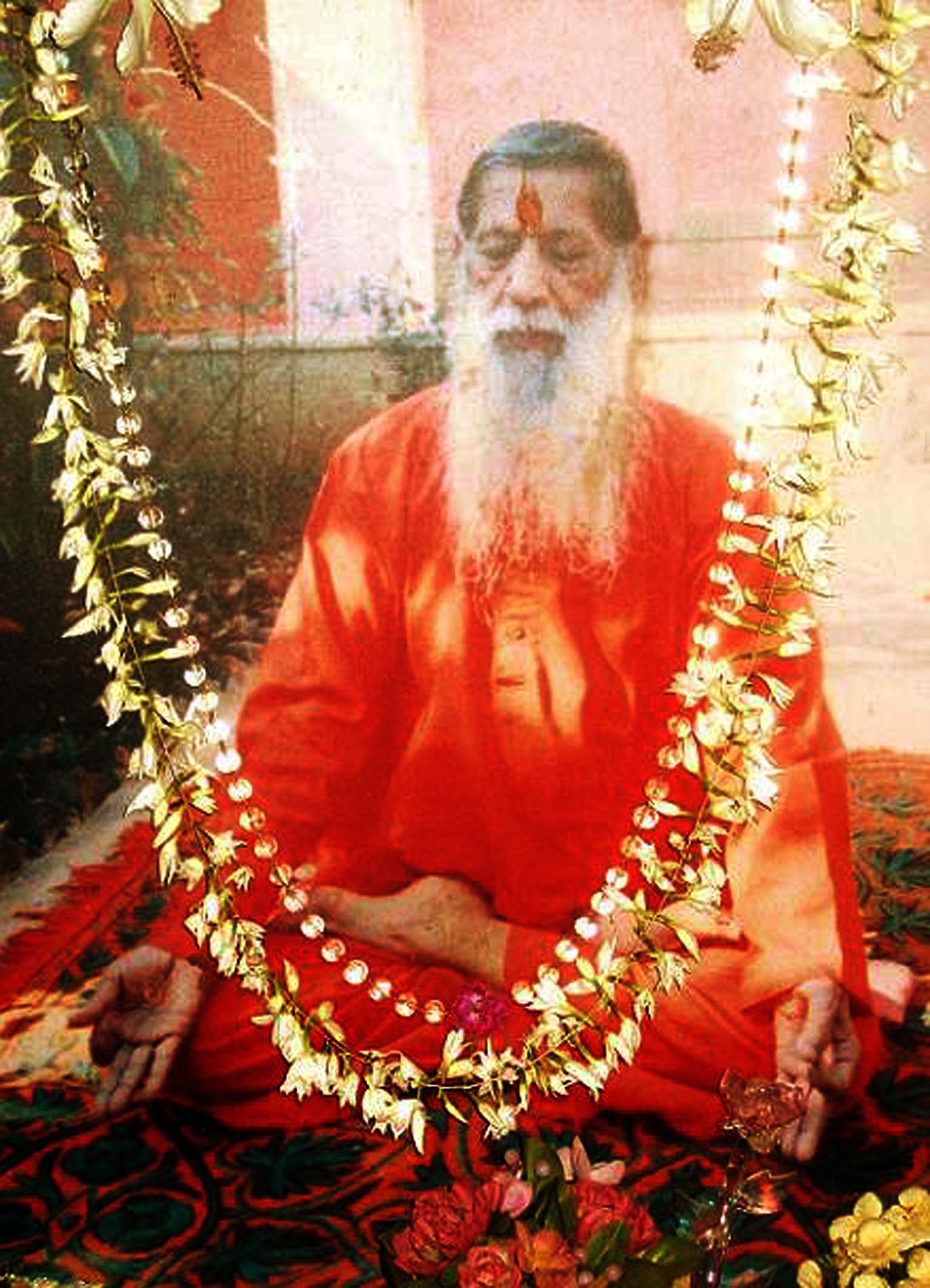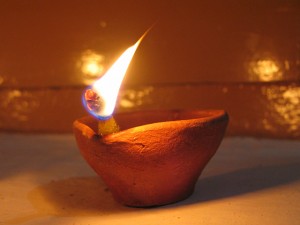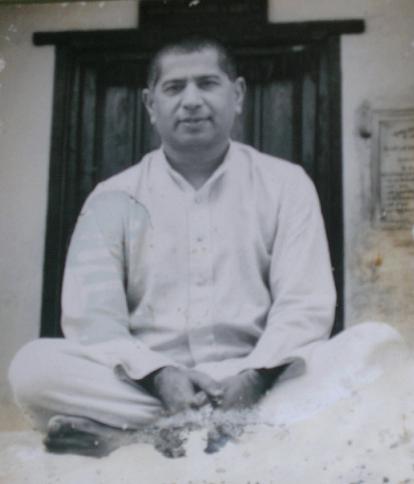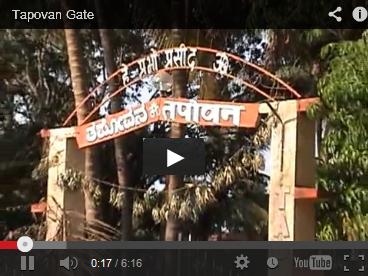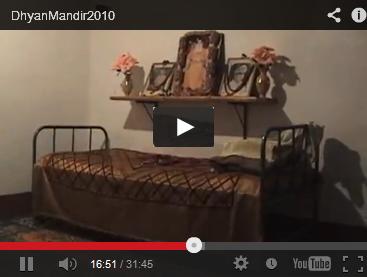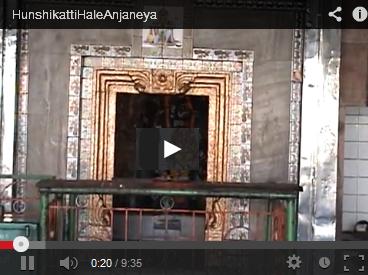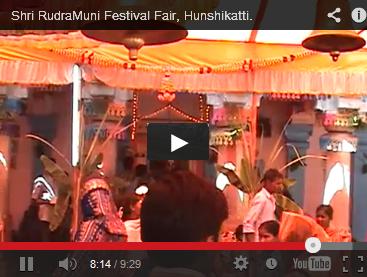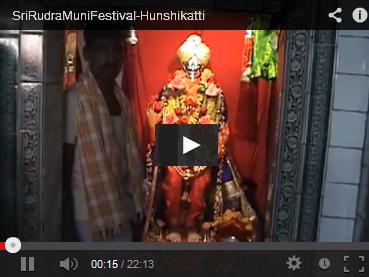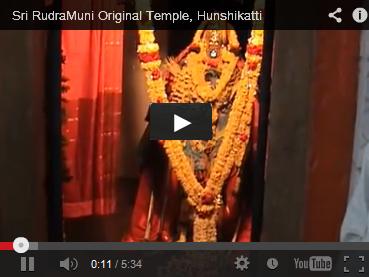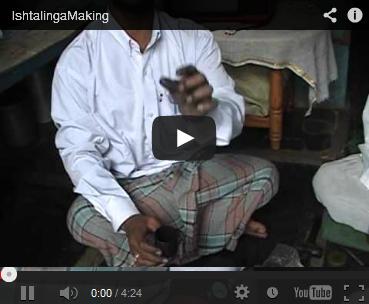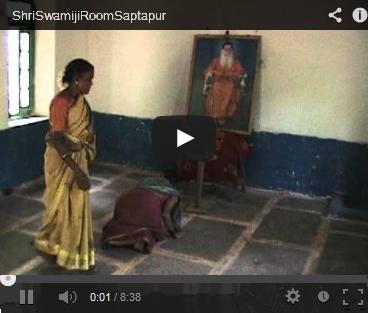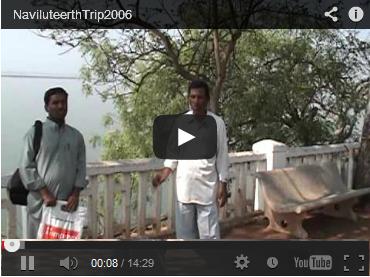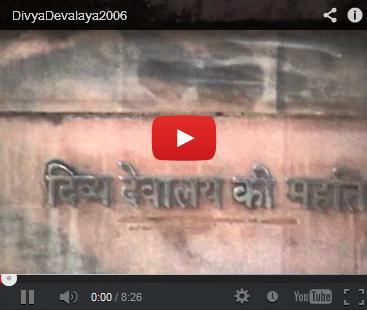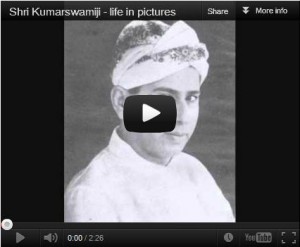“Sir, possessing the sight of eyes
And the knowledge of the heart,
I was musing in my mind.
Honey rained and nectar poured.
I was sporting in the ocean of bliss
Called K?dala Channasanga”
“I do not call it a stage or no-stage;
I do not know what to call it,
When a judgement is passed on me.
Therefore, K?dala Channasanga,
I call it communion with Linga.”
In these vachanas, Channabasavanna gives expression to the feelings welling up from his mystical trance. In spite of his being an embodiment of knowledge, he made endless efforts to attain its fullness. Introspection and self-examination are essential for a man who aspires to climb the height of spirituality. Even a personality like Channabasavanna could not dispense with these means of spirituality.
I am pure and white;
Then, why am I without a beginning ?
Why did I come to destroy the world?
Why did I come to tear the leaves of the tree of life?
Why did I come to sing, sitting amidst crowd?
Why these two names, Channa and Basava for me?
O K?dala Channasanga Lord?
Channabasavanna, though a great saint, always rigorously examined himself, since it is very difficult to attain self knowledge, without which no identification with God is possible. Channabasavanna’s question – ‘Why I did come to destroy the world?’ is full of meaning. Channabasavanna felt that be was born as if to devour the world, the fruits of which he had eaten and whose alms he bad taken. Spiritual men are never idle. They seek answers for their own existence. They ask questions about their goal. They never hesitate to question themselves and find out whether they are what they should be. They never hide anything. If they find something which they have to confess, they ask pardon and repent what they have done. This openness of soul and sincerity is the fir: t step towards spiritual growth. Channabasavanna, therefore, rightly puts fundamental questions to himself, for ultimately each one has to be true to his own conscience:
The faith that all that bears
The Linga on itself
Is Sangamanatha,
Basavanna has attained; but lo!
That faith is not in me.’
Saying this, he begs Lord K?dala Channasanga for his grace: Channabasavanna is aware that he is small and weak. Hence he asks for divine help. Prayer is the test of soul’s sincerity. Without prayer we can do nothing. So the sharana prays:
Look upon me, O Lord;
I’m my own enemy, I’m my own friend!
Others are neither enemies nor friends to me;
Keep me low, with my head bowed and hands folded.
He is his own enemy, for he has forgotten his true self. In order to come to know his true self, he should be his own friend, that is, know himself in and out. The right knowledge is possible only if there is true devotion. This flame of love is lit by the Guru. Hence Channabasavanna cries:
“Save me,
Showing me the doors of those
True devotees who have served
Guru, Linga and Jangama
In divers ways with divers feelings.”
“Lord, I would stay on, as a servant of servants,
In the house of the ancients.”
“I’m a devotee of those devotees
Who offer all
Their body, mind and wealth;
Lord, I’m a servant of your servants.”
In the past, many philosophers and mystics have denied the reality of this world in which we live, move and have our being. They have called it a mere illusion. Channabasavanna on the other hand does not deny the reality of this world. It is for him God in another form. Ultimately God is Existence itself. Therefore, whatever exists is a modality of that Existence.
Since the world is real, the sharanas want to work in it. The world is not all perfect: it has lost its spiritual dimension.
The saints, in supreme love want to restore to work its spirituality. The world, which is the beloved, has to recognise its Lover God. It has to recognise that the Lover and the beloved are one. Hence Channabasavanna takes an oath:
I won’t walk on the earth
Unless I make it a bhakta;
I won’t even look at the sky,
The moon and the sun above
Unless I make them bhaktas;
I won’t even make use of water,
Unless I make that, too, a bhakta,
Lord, K?dala Channasanga,
I should like to swear by you
That I’ll not purchase those
Eighteen kinds of different corn,
Unless I make them bhaktas.
Channabasavanna is not afraid of this world:
I don’t fear, I don’t fear,
I don’t fear to stand
Wherever you place me,
Since the mind has surrendered itself
To the Supreme Greatness.
I don’t fear, I don’t fear,
I don’t fear the money
Which you put in my hand,
For never does it reach
My wife, sons, or parents.
I don’t fear, I don’t fear
I don’t fear the body
Which you have given me,
As I’ve offered it all to you
In total surrender.
The sharana does not flee the world. He uses it, but not as worldly men do. He uses it as a means to an end, namely, the attainment of Divine glory. Men have to offer the creation to Him from whom it has come. The cobweb that has come from the spider belongs to it and has to go back to it. The destiny of the world is spiritual and it has to go back to Shiva. Man has to realise this truth and thus constantly offer it to Linga. Hence, man by nature is a priest. ‘Lord, I worship you in eight ways and offer you sixteen kinds of service and thus come to you safe and sound. In this continual worship there should be no half-heartedness. The saint is aware of this:
If I do anything half-heartedly,
If I give away anything half-willingly,
If, in the course of giving a thing,
I hasten to taste it myself,
Lord, treat me as a traitor at once.
If you don’t find me pure
Both in deed and gift,
O Lord K?dala Channasanga
Cut off my nose on the spot.
Thus he takes an oath to worship and to offer himself whole heartedly:
That which does not reach the mouth
Of Linga is a fatal poison
Lord K?dala Channasanga,
It’s towards you, not towards me,
That food should first move.
Thus once a sharana has offered the whole universe to God, whatever be partakes from it becomes a communion, a partaking of Shiva. That is why the creation is known to the saints as Prasada or communion.
Madam, the whole body is Prasada,
All values are Prasada;
Madam, the whole body is His,
All is Kudala Channasanga’s Prasada.
One does not attain this spiritual knowledge by merely wishing. Everyone has to work for it under the guidance of a wise and able spiritual guide. Channabasavanna recalls how his Spiritual Father had to work for his spiritual child:
Look, how the illusion of the mind,
Which is darkened with sooty ignorance, is removed;
By heating once, melting sometimes,
Basavanna, your ardent sharana
Dispelled the illusion of my mind.
The path of holiness is not all easy. It requires constant denial of self, continual mortification and constant purification. As we have to put a piece of impure gold in the furnace, burn it, hammer it, brush it and repeat this process several times in order to realise its true worth, so, in the path of holiness, a. soul has to be subjected to serve tests. Channabasavanna cannot forget his early life under his spiritual guide.
Once the darkness of illusion disappeared from Channabasavanna’s soul, thanks to the superb guidance of his spiritual masters, Basavanna and Allama Prabhu, he got the vision of God:
Through body’s grace it is,
Linga is found,
Through body’s grace it is,
Jangama is found,
Through body alone are found
The riches of Prasada.
O Lord Kudala Channasanga,
It’s thanks to body that I
Found you!
Channabasavanna is grateful to his spiritual master, Basavanna, for enabling him to realise God in himself. Gratitude is the quality of great souls:
“I am, O Basavanna, the slave
Of thy servant’s servant’s servant, Sir,
At third remove!”
“His inner senses are fulfilled
Of consciousness, and in His outer life
He is endowed
With spirit of service; he is possessed,
In body, mind and deed,
Of pure devotion; enriched
In every pore with Linga; filled
In every cell with every kind
Of discipline, I say.”
Establishing within the heart
The Linga is Prana, and Prana Linga,
And making me like you
You vanished out of form, Basavanna,
In the great Linga!
Dissolving my mind in the Great Principles,
You disappeared, O Basavanna,
Made one with the Absolute!
When, feeding with the grace
That was bestowed and left,
And giving her a form, you lodged
Mother Nagayi in your heart,
My mind dissolved and swooned
Within your feet,
O Sangana Basavanna.
The triple world
Awakes to knowledge that I am indeed
The child of Sangana Basavanna’s grace
And shouts with a triumphal joy!
I am child, behold,
Of Basavanna’s traditional mode.
Similarly, he praises Lord Prabhu:
“Today, 1 have realised
The truth that Prabhud?va,
K?dala Channasangama’s sharana was never born.”
Experience is the recourse
For the satisfaction of consciousness.
It’s through experience of Linga
That I saw you.
The sight of you, for me,
Is self-forgetfulness:
O see that,
O Prabhu K?dala Channasangama Lord.
O incomprehensible come to my experience!
O resting-place of my consciousness!
O aspiration of my will!
O height of my true self!
O M?ru of my peace!
O glory of my mind, where bas
Thy motion disappeared?
O Linga, ‘where has thy name
Forgone its name?
O Supreme Guru, O Thou who surely art,
In Lord K?dala Channasanga,
Like camphor that’s consumed by fire
Prabhu!
Channabasavanna has given expression to devotion in his praise of Lord Marula Shankara.
Offering the Limb, Life, Body and Spirit to Ishta, Prana and Bhavalinga, who is fed on the Prasadas of acharalinga, Pranalinga and Jangamalinga and who, as he has picked up the food lying in the courtyard of true Sharanas will sport in the pond of your Prasada for twelve years.
To the glory of Marulashankara
Who has transformed himself
Into the Absolute Void:
He who has performed
Impossible devotions;
He who has seen
Invisible visions;
He who has attained
An unattainable Union;
Beyond the praise’s praise,
Intangible to touch.
Channabasavanna has not forgotten Akka Mahadevi:
The Ancients’ sixty vachanas are worth
Twenty of Basavanna’s;
The Great Leader’s twenty, Prabhuduva’s ten;
Prabhud?va’s ten are worth Ajaganna’s five;
Ajaganna’s five, in Lord Kudala Channasanga,
Are worth one of Mahadaviyakka’s
See, that, Siddharamayya!
Channabasavann has also praised the other sharana:
Basavanna is my inner self
My outer self, Maldivala.
The union of these two
Is Prabhuduva.
From this and other similar vachanas we can have a glimpse of Channabasavanna’s mystical heights. He is no more an individual shut in his small ‘I’ but lost in the ‘other’- Linga. Whatever he had, including himself, he has offered to Linga. Thus, everything for him became prasada. Wether he ate or drank, walked ox rested, tasted or smelt, touched or heard, desired, understood or willed-all he did, not as an entity separated from the Supreme, but as one who found identity with Him. All his actions were Linga’s actions.
In spite of such progress in mysticism Channabasavanna did not lose sight of his society. He used his knowledge, holiness, virtues, in a word, himself, to make his society a better one. For this purpose be re-interpreted the Satsthala. The principles of ‘Ashtavarana’ and ‘Panchachara’ were his tools. Thus, he made religion a means of improving man in society. He bridged the gulf between religion and the day-to-day life. The purely secular society received a spiritual dimension. Such a casteless and classless society, animated with spiritual ideals, is indeed universal in its appeal. In fact, Channabasavanna’s dream was to spread the fragrance of this ideal society, so that everyone could free himself from his bondage.
Channabasavanna, who was an uncrowned King of Veerashaivas, will be acclaimed not only as Satsthala Stapanacharya but also as one who elevated Veerashaivism to the status of a world religion.
This information on – ‘Sri Chennabasaveshvar’ – is collected from ‘various sources on internet, books, magazines’.
References
[1] Dr. R. G. Hiremath, M. A., Phd. Vice-Chancellor, “SHRI CHANNABASAVESHVARA, Life and Philosophy”, 1978, Karnatak University, Dharwad








